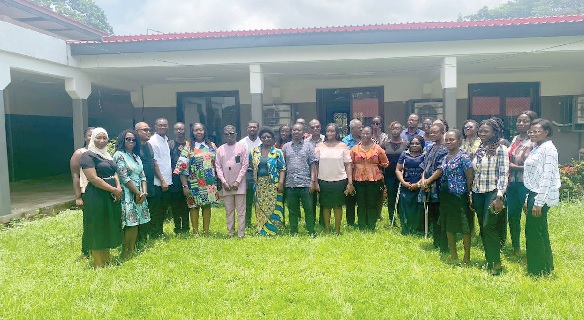
Lecturer calls for change in disability fund disbursement method
Lecturer, Dr Augustina Naami, has suggested a change in the disbursement of the Disability Common Fund to achieve the desired purpose of alleviating poverty among persons with disability (PWDs).
Advertisement
He said a proper overhaul of the system could help break the cycle of poverty among PWDs and ultimately change the narrative of them being the poorest of the poor.
Dr Naami, who is the Head of the Department of Social Work at the University of Ghana, also said various assemblies could employ electronic means of disbursing the funds to mitigate some of the challenges PWDs went through to access them.
At the seminar on financial capability and asset building (FCAB) for social work practitioners in Accra yesterday, she said currently, the funds were disbursed manually, compelling the PWDs to visit the assemblies to access them.
“And for those who use wheelchairs, they have to struggle to get there, and even when they get there, the office structures are also not disability friendly,” Dr Naami said and added that in most cases, they did not receive the amount of money they requested.
The seminar was organised by the Department of Social Work, in collaboration with the University of North Carolina.
Meeting needs of clients
Dr Naami also urged social work practitioners to use financial capability and asset building alternatives to meet the needs of their clients, especially PWDs.
FCAB involves helping people to acquire knowledge and skills required to make sound financial decisions for themselves and their families.
She, therefore, said it was important for social work practitioners, who dealt with vulnerable populations, to acquire such knowledge and skills to build the capacity of their low-income clients to fully understand and navigate the increasingly complex financial sector and the choice of products and services available.
Dr Naami further said building FCAB skills and promoting financial inclusion of vulnerable populations required the collaborative efforts of all stakeholders.
The Dean of the School of Social Sciences, Prof. Mavis Dako-Gyeke, also, said there was the need to incorporate FCAB in the school curriculum to equip pupils and students with asset building.
She noticed that one of the challenges the people faced was that although they had the resources, they were unable to manage them efficiently.
“Already, FCAB is fused with some courses, but there is the need to introduce it as a stand-alone course so that students could be prepared to assist clients properly,” the dean added.




